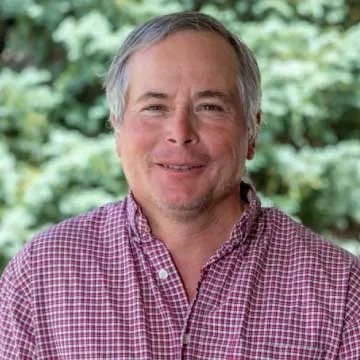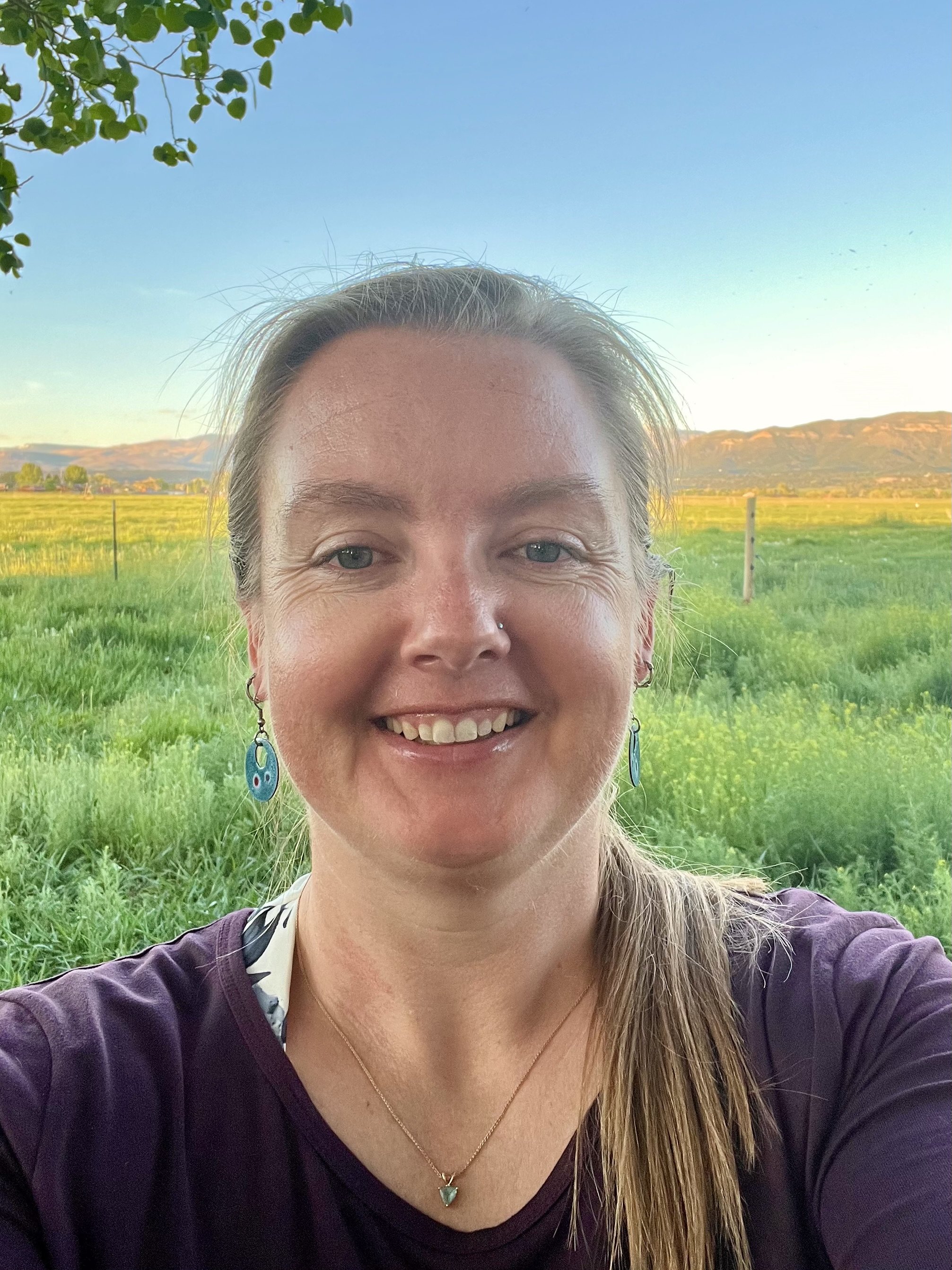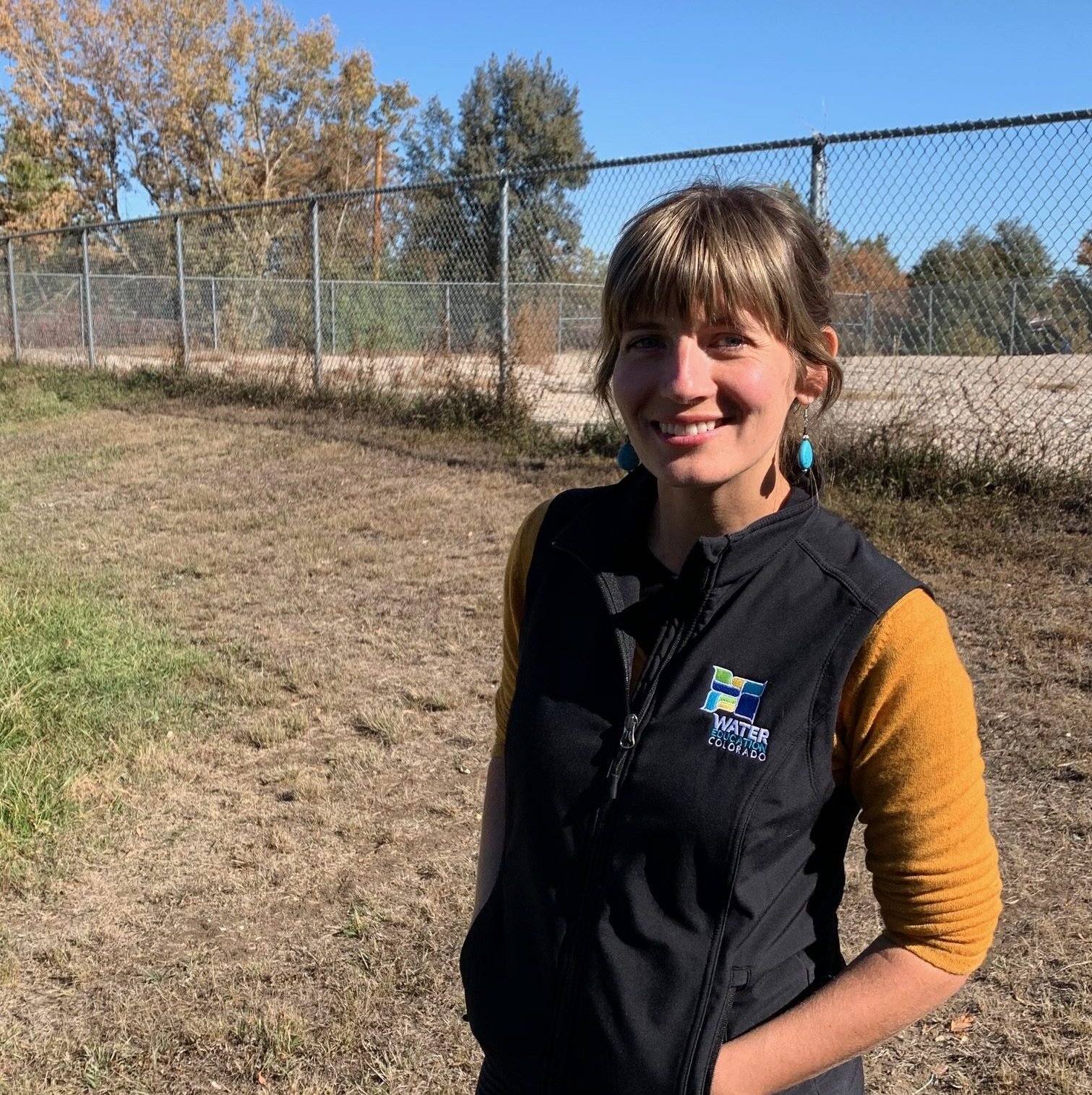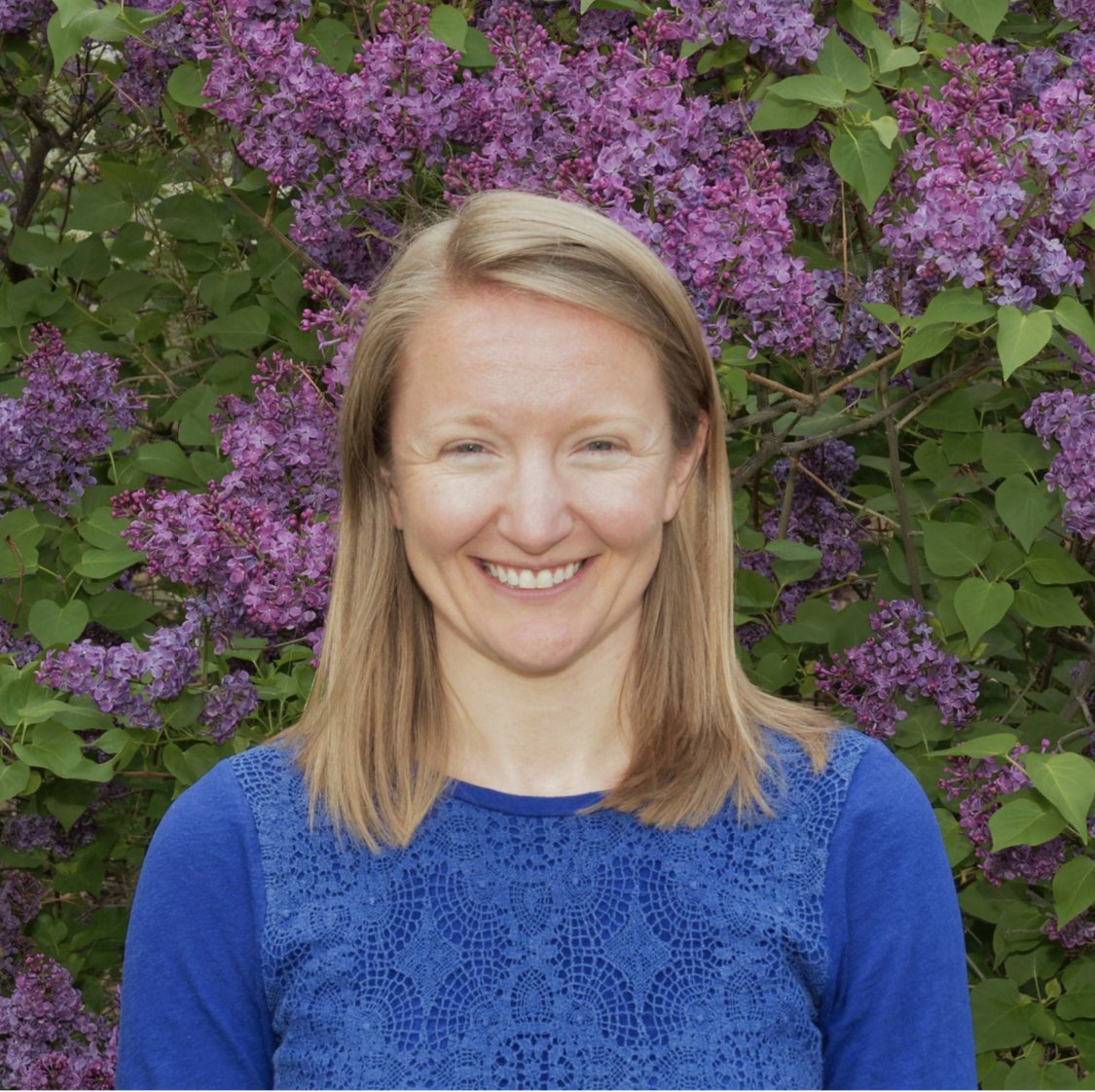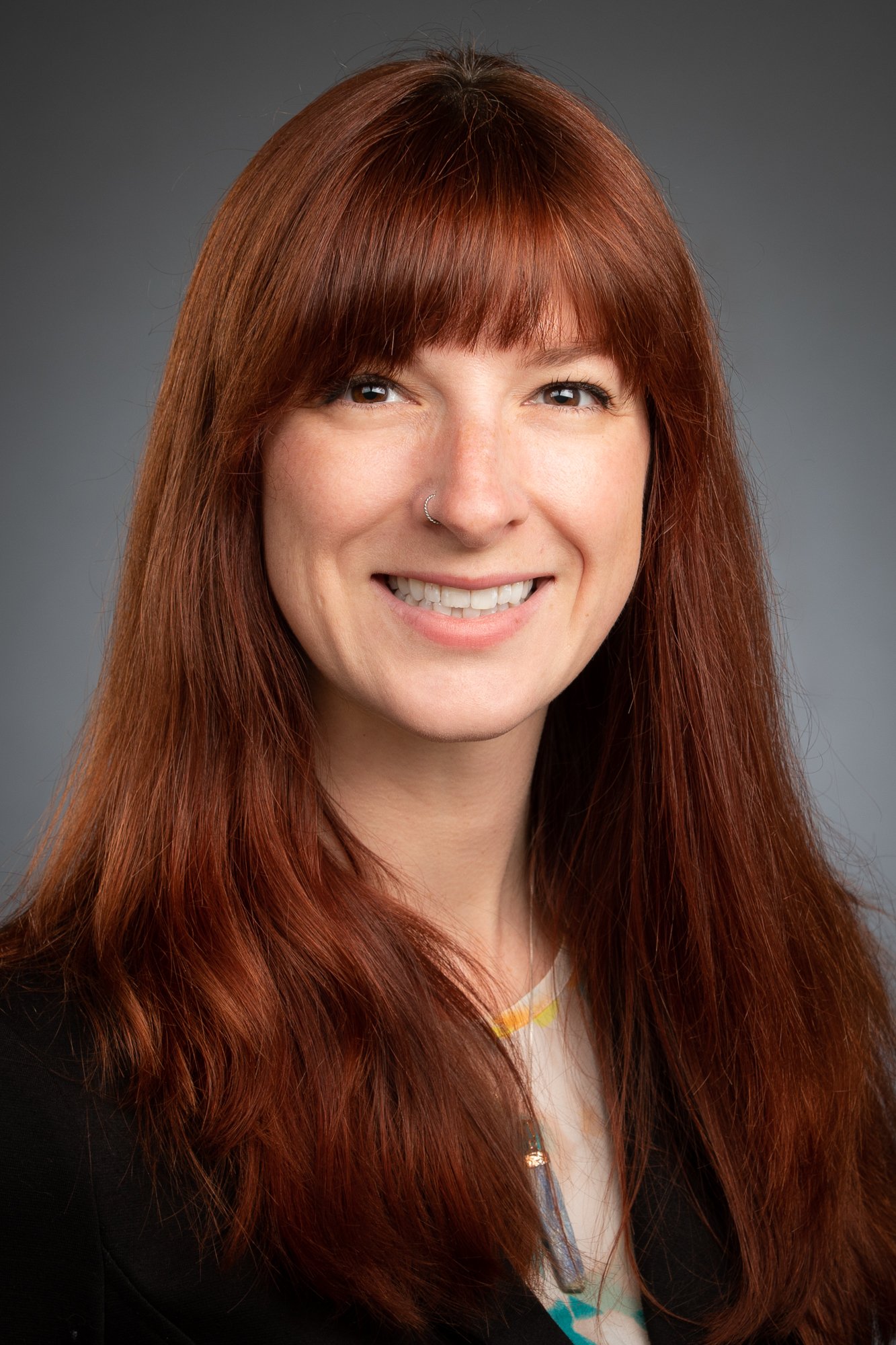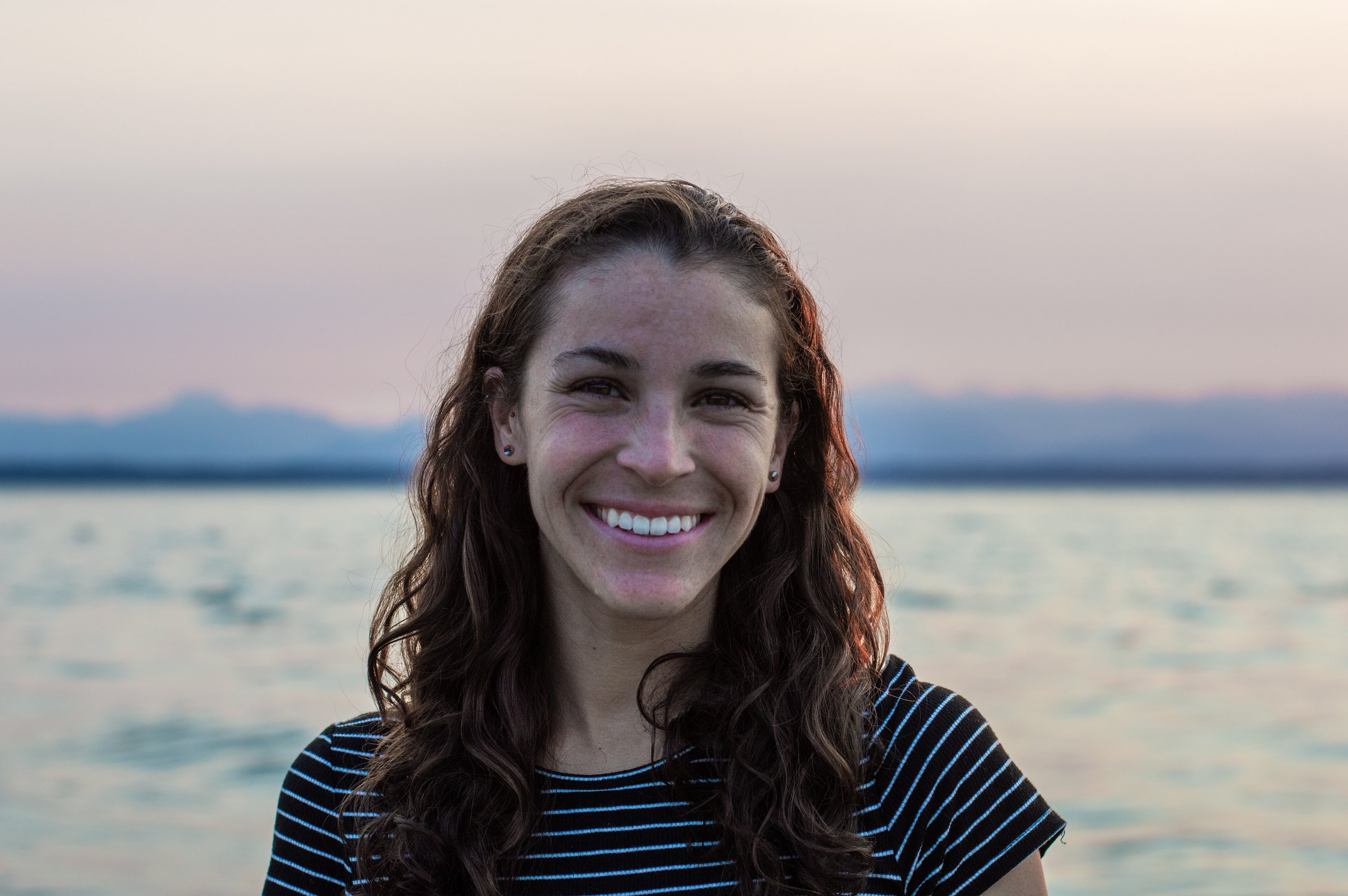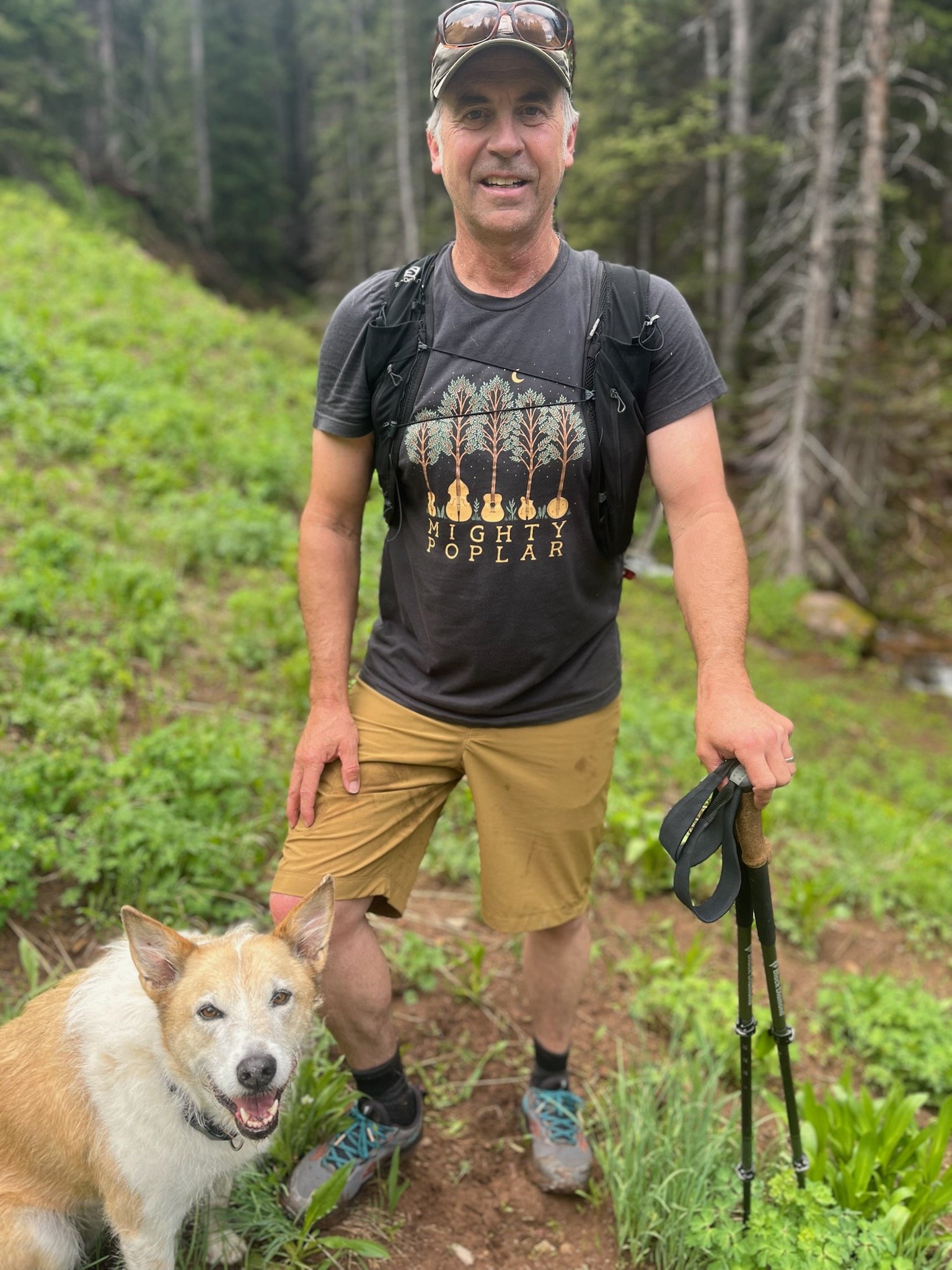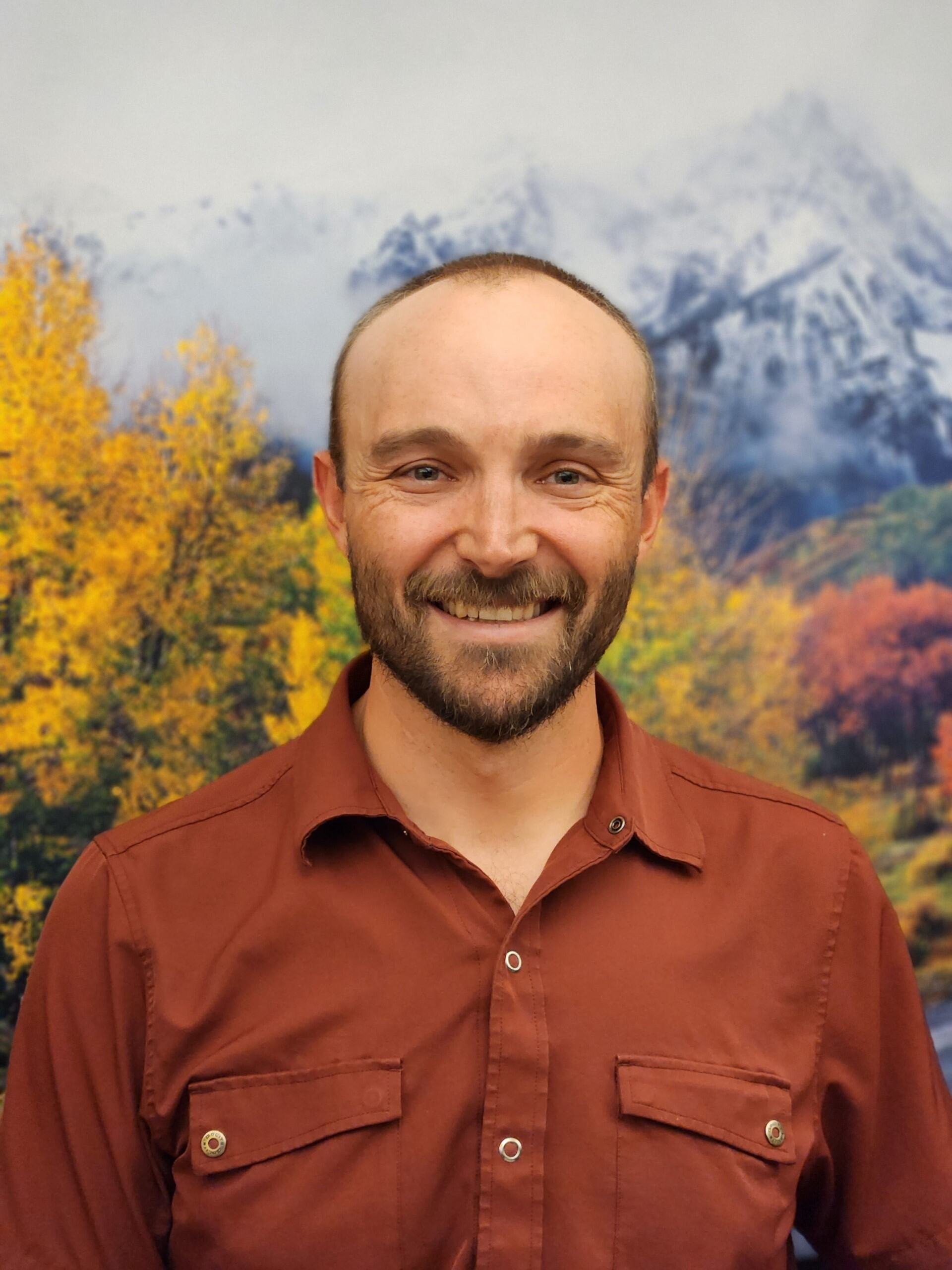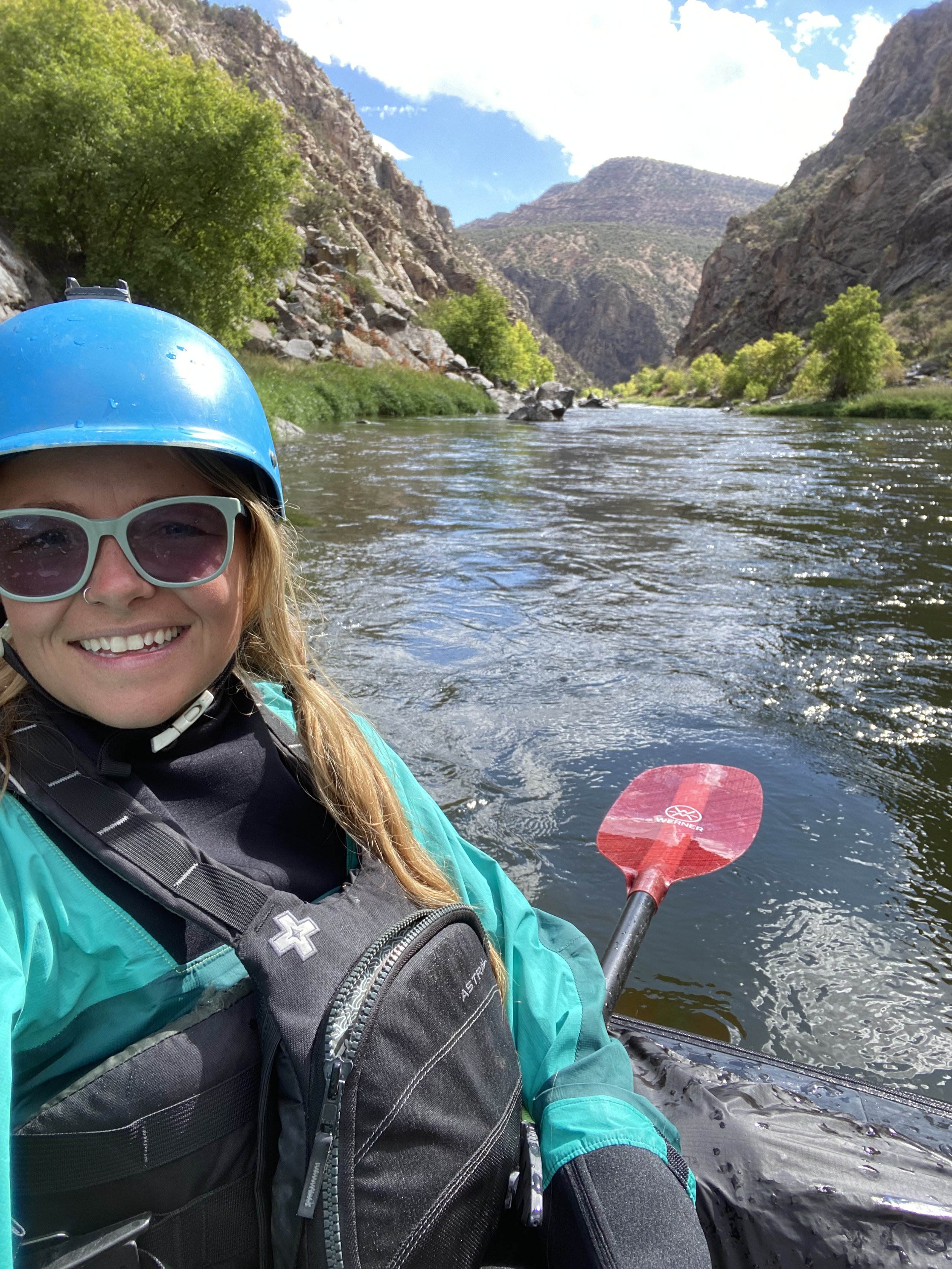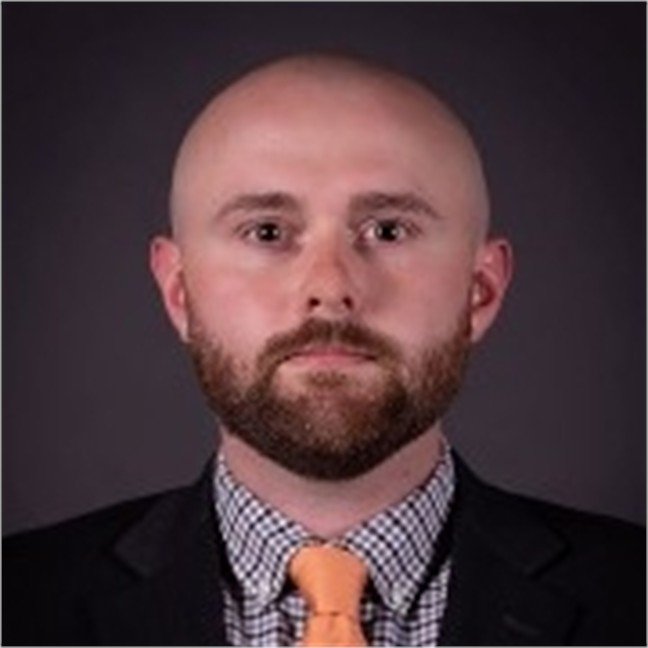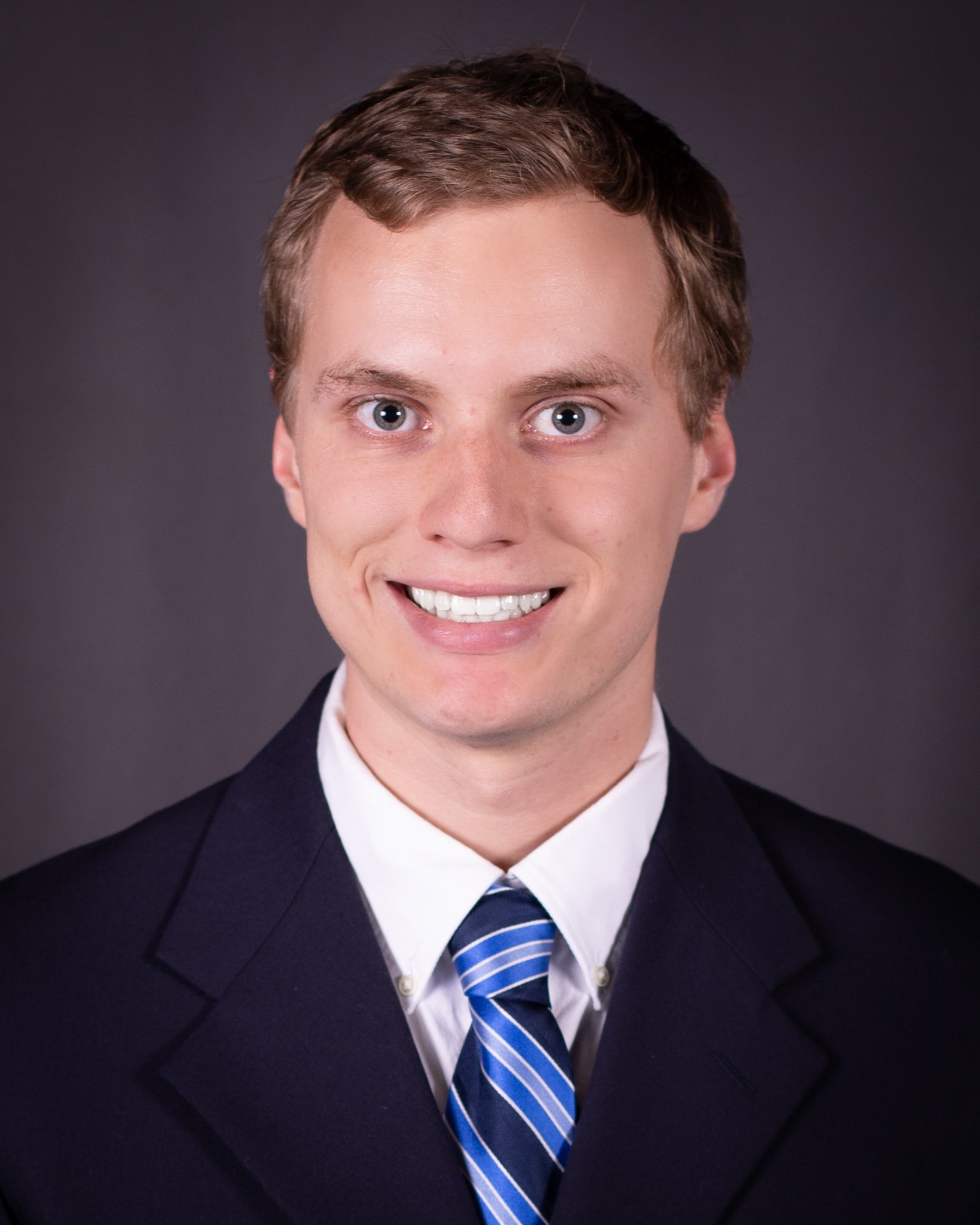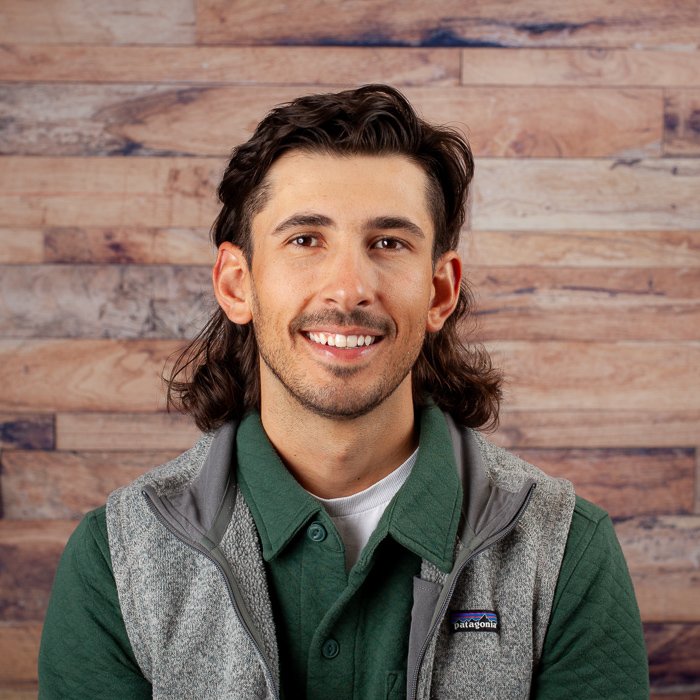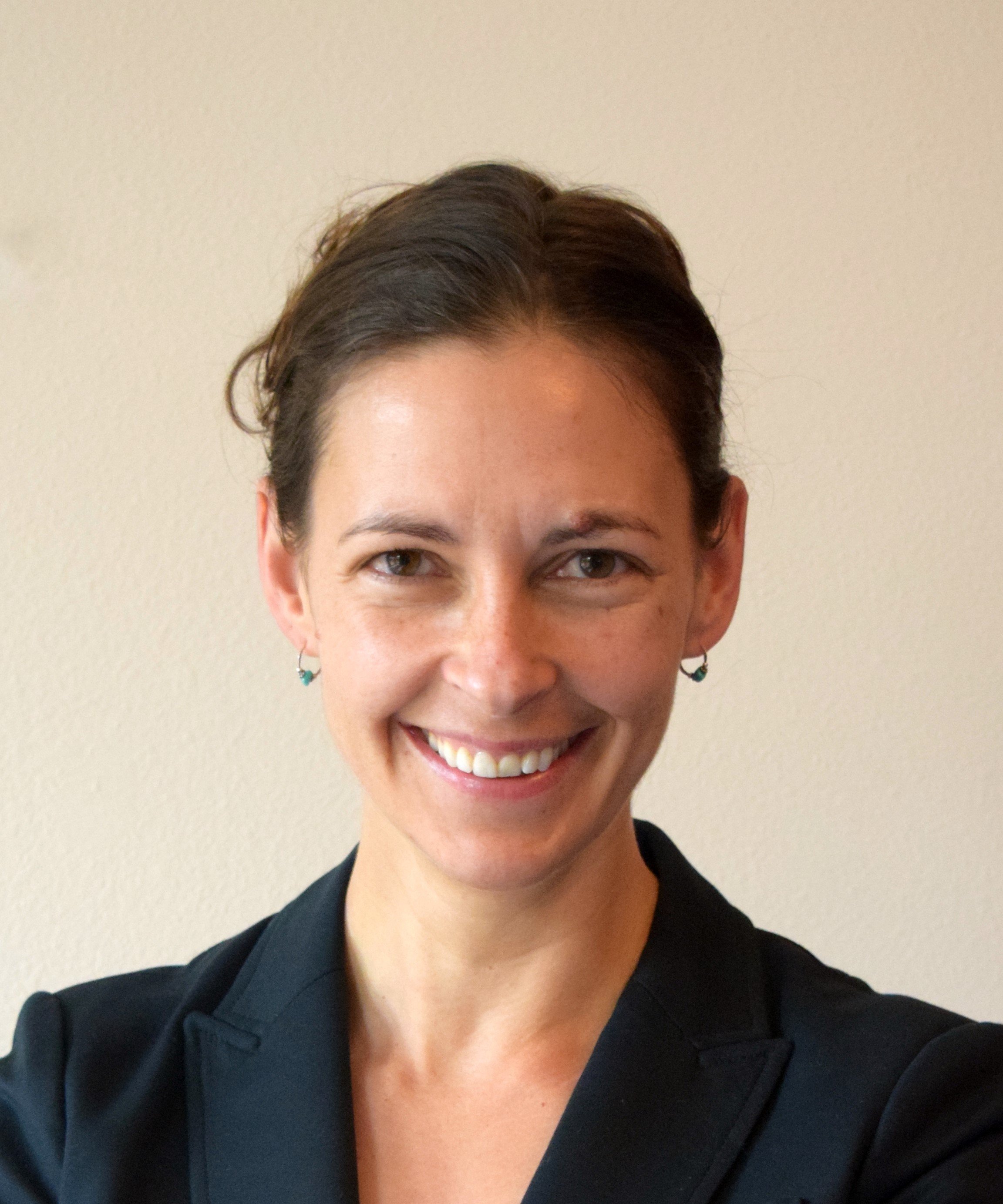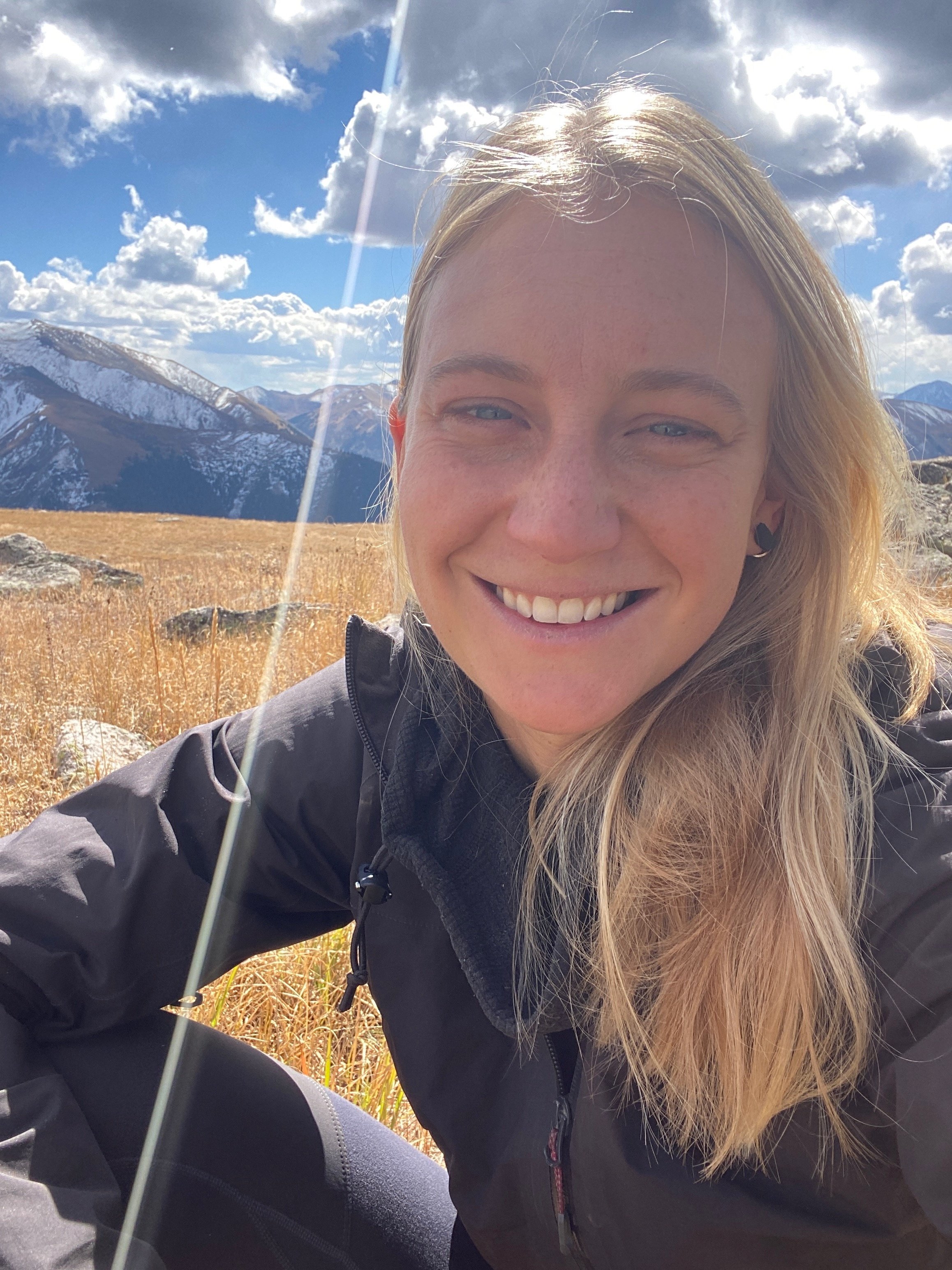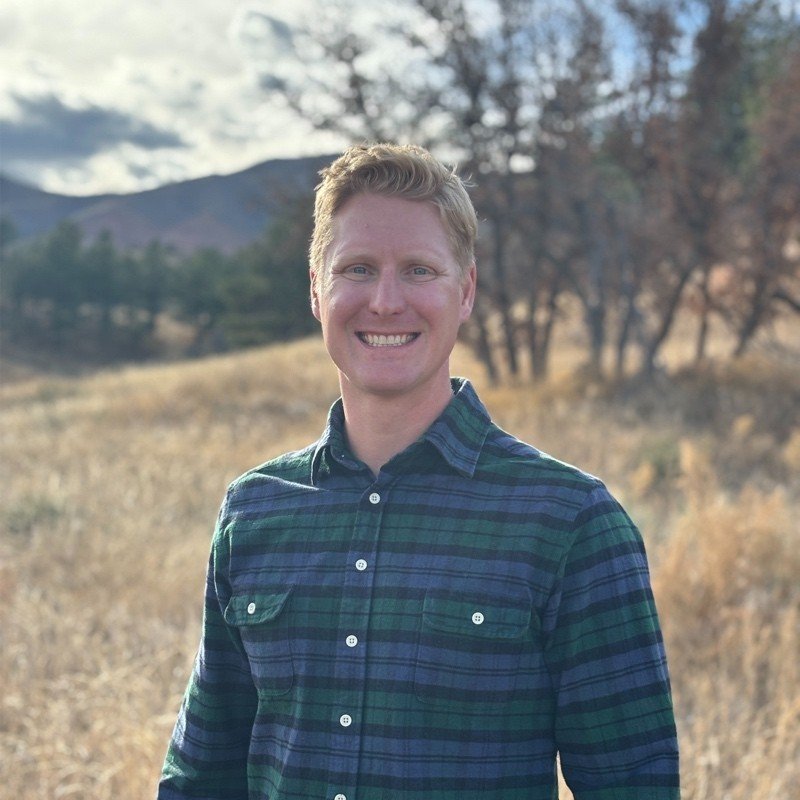Speaker Bios
Tuesday, October 8th from 1:00 PM - 2:45 PM
| Conference Welcome & Plenary Session I|
Tuesday, October 8th from 1:00 PM - 2:45 PM | Conference Welcome & Plenary Session I|
What's Next for the Colorado River? Elevating Ecological Values
Jennifer Pitt
Amy Ostdiek
Carly Jerla
Matt Rice
Aaron Derwingson
Jennifer Pitt, Audubon
Jennifer Pitt has worked on behalf of conservation NGOs for 25 years to protect and restore the Colorado River for people and nature. As Audubon’s Colorado River Program Director, she collaborates with a team on a range of issues that address sustainability and resilience in the Colorado River Basin, including state-based groundwater and river management reforms and federal rulemaking. Jennifer also serves as U.S. co-chair of the Minute 323 Environmental Work Group, and co-chair of Raise the River, the binational coalition working to restore habitat and reconnect the river in the Colorado River Delta.
Amy Ostdiek, Colorado Water Conservation Board
Amy Ostdiek is the Chief of the Interstate, Federal, and Water Information Section at the Colorado Water Conservation Board, a state agency whose mission is to develop, protect, and manage Colorado's water for present and future generations. The section Amy oversees works to protect Colorado's interests in interstate water compacts and supports coordination with the federal government and other states in various contexts. Much of Amy's work focuses on Colorado River matters, including supporting the State in negotiations and coordination with fellow Basin States, Tribal Nations, and others within the Basin. Prior to joining CWCB, Amy was an Assistant Attorney General with the Colorado River Subunit at the Colorado Attorney General’s Office. Amy is originally from rural Western Nebraska. She attended the University of Nebraska-Lincoln and the University of Colorado Law School.
Carly Jerla, U.S. Bureau of Reclamation
Carly Jerla is a senior water resources program manager with the Bureau of Reclamation. She is currently leading Reclamation’s efforts to develop updated long-term operating rules for Lake Powell and Lake Mead (the “Post-2026 Process”). She is currently stationed at the University of Colorado's Center for Advanced Decision Support for Water and Environmental Systems (CU-CADSWES) alongside Reclamation's Upper and Lower Colorado River Basin Regions' research, planning, and modeling teams. She is a graduate of Carnegie Mellon University and the University of Colorado. Carly has worked for the federal government, primarily with Reclamation, for over 20 years.
Matt Rice, American Rivers
Matt Rice directs American Rivers’ multidisciplinary programs in the Southwest Region, a region that spans seven states from Wyoming to California. His team drives innovative policy, program, and project solutions to conserve water in the urban, agricultural, and energy sectors to ensure that the rivers and streams in the region are healthy for local and regional economies, sustainable agriculture, and world-class recreation. Previously, Matt has worked as a fly fishing guide in Montana, Colorado, Kentucky, and South Carolina. He also spent 4 years in Zambia working with rural farmers to integrate fish farming and irrigated agriculture into their farming systems. Matt completed his masters in Environmental Policy from the University of Denver. His research was focused on global water resources. He received his undergraduate degree from Montana State University in 2000. When not at work, he can be found with his three boys and a fly rod on a river somewhere in Colorado.
Aaron Derwingson, The Nature Conservancy
Aaron’s experience in water and his passion for river conservation goes back to years spent guiding raft trips on the Klamath, Sacramento and other rivers throughout the western U.S. After completing a master’s degree in Community and Regional Planning at the University of Oregon, Aaron moved to Colorado, where he served as the stewardship director for the Rio Grande Headwaters Land Trust. In this role, Aaron helped protect working agricultural lands, wildlife habitat and water resources along the mighty Rio Grande and its tributaries. After receiving a second, more hands-on education in irrigation water use from the farmers and ranchers along the Rio Grande, Aaron joined The Nature Conservancy in 2012 on a two-year fellowship to build relationships with agricultural producers and test new approaches to water management in the Colorado River Basin. Now as the Water Projects Director for TNC’s Colorado River Program, Aaron continues to focus on building partnerships and creating pragmatic, solution-oriented approaches to freshwater challenges that deliver benefits for agriculture, communities and the health of the rivers that we all rely on. In his time at TNC, Aaron has piloted water banking and other tools for flexible water management, conducted field research on the agronomic and environmental impacts of reduced irrigation, evaluated alternative low-water-use crops and upgraded irrigation water use to help improve river flow
Tuesday, October 8th from 3:00 PM - 4:30 PM
| Conference Welcome & Plenary Session II |
Tuesday, October 8th from 3:00 PM - 4:30 PM | Conference Welcome & Plenary Session II |
Fire! Change and Adaptation to the Fire Landscape in Colorado
Jeff Sickles
Jared Heath
Curtis Hartens
Jeff Sickles, Olsson Associates
Jeff Sickles is an industry expert in water resources at Olsson. He has been working in the watershed and river professional community for over 30 years. His experience is wide-ranging and includes watershed planning, river rehabilitation and restoration, and programmatic disaster recovery for both floods and wildfire. Jeff’s passion is solving interesting problems for people who care. When he’s not working, Jeff and his bride travel the world, exploring new cultures, food, and connecting with people.
Jared Heath, City of Fort Collins
Jared Heath grew up exploring Colorado’s watersheds, fostering a passion for water and the natural environment at a young age. After working as a “professional” ski bum and rafting guide, he earned a master's in Watershed Science from Colorado State University. With over 15 years of experience in watershed management, Jared has worked in academia, consulting, and local government. As the Senior Watershed Specialist for the City of Fort Collins Utilities, he leads efforts to monitor and protect the city's water sources and source watersheds. In his free time, you can find him skiing, rafting, hiking, or biking in the Poudre River watershed, usually accompanied by his wife, son, and dog.
Curtis Hartenstine, Tri-State Generation and Transmission Association, Inc.
Curtis Hartenstine is the Wildfire Mitigation Program Manager for Tri State Generation and Transmission. In this newly created role, Curtis coordinates the various aspects of the program into a cohesive strategy for risk identification and reduction. He holds a bachelor’s degree in Forest Ecology, and a Master’s degree in Environmental Science along with several certifications in wildfire behavior and mitigation. Having lived and practiced professionally in the Intermountain West for over 20 years, Curtis brings a holistic approach to wildfire mitigation program combining his knowledge of watershed science, forest health, wildfire mitigation and post fire recovery. Originally from the pine forests of southern New Jersey, he now Lives in Lyons, Colorado, with his wife, 2 kids and a very sleepy cat. Curtis supports his community as a volunteer wildland fire fighter and is the head coach of the Lyons Elementary School boy’s basketball team.
Keynote Address: A Walk in the Park
| Tuesday, October 8th from 7:30 PM - 8:30 PM |
Keynote Address: A Walk in the Park | Tuesday, October 8th from 7:30 PM - 8:30 PM |
Kevin Fedarko, New York Times Bestselling Author
Kevin Fedarko has spent the past twenty years writing about adventure, exploration, and the Grand Canyon. He has been a staff writer at Time magazine, where he worked primarily on the foreign affairs desk, and a senior editor at Outside. His writing has appeared in National Geographic, the New York Times, and Esquire, among other publications. Fedarko’s first book, The Emerald Mile: The Epic Story of the Fastest Ride in History Through the Heart of the Grand Canyon, won a National Outdoor Book Award and the Reading the West Book Award. His second book, A Walk in the Park: The True Story of a Spectacular Misadventure in the Grand Canyon, was a New York Times bestseller. Kevin lives in Flagstaff, Arizona.
| 8:30 AM - 10:00 AM |
Wednesday, October 9th
| 8:30 AM - 10:00 AM | Wednesday, October 9th
The Power of a Project Champion: Moderated by Steve Reeves, Colorado Water Conservation Board
The Power of a Project Champion Panel
Melissa Wills
Facilitator - Melissa Wills, Colorado River District
Melissa Wills is the Community Funding Partnership Program Manager for the Colorado River District – leading the District’s flagship funding program. Melissa oversees the distribution of about $4 Million in grants annually and works closely with partners to execute strategic initiatives. She has over eight years of nonprofit and philanthropic experience through work with the Vail Valley Foundation and the completion of the El Pomar Foundation Fellowship Program - a two-year intensive nonprofit and philanthropic executive training in Colorado Springs. Melissa has been with the District since 2022. She lives in Carbondale, CO and can be found backcountry skiing, mountain biking, and backpacking.
Patrick Stanko
Vanessa Logsdon
Patrick Stanko, Community Agriculture Alliance
Patrick Stanko is a fourth-generation rancher on a local Yampa Valley ranch that has been in the family for more than 100 years. After a 20-year hiatus from the Valley, while gaining his Engineering degree and working in the business world, Patrick moved back to the ranch in 2013. Patrick began working with the Community Ag Alliance as the Ag Resource Coordinator in 2018. In this role, Patrick represents agriculture in programs like the Yampa River Integrated Water Management Plan. Patrick is dedicated to supporting producers and promoting agriculture in the Yampa Valley. Using the momentum from the integrated water management plan, CAA and Patrick have been working on developing, funding, and implementing agriculture projects that meet multi-benefits for agricultural, environmental, and recreational systems.
Vanessa Logsdon, Blue River Watershed Group
Vanessa Logsdon came to Colorado from Florida in 2002, with a B.S. in Biology and considerable wildlife research experience. Her passion for water and natural resources led her to work in the outdoor industry as a rafting, climbing, and mountain bike guide as well as in fisheries with the Colorado DOW, now CPW. Her love for community organizing and community service resulted in 2 years of Peace Corps Service in Paraguay and eventualy she found her way into the non-profit sector working for the American Alpine Club where she enjoyed serving the outdoor community and worked alongside other outdoor non-profits. After joining BRWG as their Advancement Director, Vanessa stepped into the Executive Director role where she continues to center her passions around balancing outdoor recreation with conservation and community organizing. Vanessa's free time is spent kayaking on our western rivers, skiing in the backcountry, or mountain biking on the amazing trails throughout the County and around Colorado.
Jesse Kruthaupt, Trout Unlimited
Using Community Consensus to Adapt to Change
Sensa Wolcott
Sensa Wolcott, Mancos Conservation District
Sensa Wolcott serves as the Watershed Coordinator for the Mancos Conservation District in southwest Colorado. She is passionate about community-based conservation, and is dedicated to connecting people with the land through dialogue and collaboration. Sensa holds a Master’s Degree in Biology from Miami University, as well as a Bachelor’s Degree in Environmental Biology and an Associate’s Degree in Sustainable Agriculture from Fort Lewis College. Sensa also received specialized training in consensus building through the Community Consensus Institute. When not working, Sensa enjoys spending time outdoors hiking, camping, mountain biking, or capturing the beauty of nature through photography.
Meeting Industrial Water Needs: Moderated by Sabrina Scherma, Water Education Colorado
Headwaters LIVE: The Water/Energy Nexus Adapting for the Future Panel
Sabrina Scherma
Caitlin Coleman
Facilitator - Sabrina Scherma, Water Education Colorado
Sabrina Scherma is the Programs Director at Water Education Colorado and leads the Water Leaders, Water Fluency, and Basin Tour programs. Sabrina manages the strategic direction of Water Education Colorado's programs and publications, and has a background in facilitation and strategic planning. She has a Master's degree in Political Science and a Bachelor's in Biology, both from the University of Colorado Denver.
Caitlin Coleman, Water Education Colorado
Caitlin Coleman is Water Education Colorado's publications and digital resources managing editor. She edits and writes WEco's Headwaters magazine, Citizen's Guide/Community Guide series, and fact sheets, helps produce Fresh Water News, and coordinates associated webinars and outreach events. Caitlin has 16 years of experience in water reporting and outreach, 13 of those have been with Water Education Colorado. She has a Master's degree in Journalism with a Certificate in Environment, Society and Policy from the University of Colorado - Boulder, and Bachelor's degree in Environmental Studies and in French from the University of Vermont.
Making Change Less Scary: Predicted and Observed Response from Klamath Dam Removals
Blair Greimann
Blair Greimann, STANTEC
Blair Greimann has 25 years of experience in the analysis of sediment transport in river and reservoirs, with application to a wide variety of projects including dam removal, river restoration, water diversion, and reservoir sediment sluicing. His first 23 years of experience was at the Bureau of Reclamation as the Technical Specialist for the Sedimentation and River Hydraulics Group and the last 2 years with Stantec.
Agricultural Innovation Innovation: Moderated by Casey Davenhill, Colorado Watershed Assembly
You're Doing WHAT with My Runoff? Panel
Facilitator - Greg Peterson, Colorado Ag/Water Alliance
Greg Peterson grew up in Littleton, CO, where he still lives after living around the world. He studied history and political economy. He has served at the Executive Director of the Colorado Ag Water Alliance for over eight years. Greg has been knee-deep in farmers and ranchers, learning more about water, agriculture, Colorado, and the digestive habits of cattle than he thought possible. He spends his free time growing vegetables on his small farm, learning to hate hail and bindweed.
Erik Wardle
Erik Wardle, Colorado State University
Erik Wardle is a water quality agronomist in the Department of Soil and Crop Science’s Water Quality Program at Colorado State University. In this position he does extensive research, writing and Extension work related to agricultural water quality issues including; pesticide use, nutrient management, soil moisture monitoring, groundwater/surface water interactions, conservation tillage, and irrigation water management. He supports the development, validation, and promotion of agricultural Best Management Practices that allow chemical handlers to use these products appropriately while preventing the contamination of surface and groundwater in Colorado. He works closely with the agricultural community to ensure that research and outreach efforts provide practical, real world solutions to water quality issues in agriculture.
Belinda Rossi, Land Owner
Troy Waters, Land Owner
Joe Bernal, Land Owner
Innovative Pathways to Increasing Agricultural Resilience: The Colorado Soil Health Program
John Rizza
John Rizza, Colorado Department of Agriculture
John Rizza achieved a Bachelor of Science degree in Natural Resources Management with a minor in Forestry from Colorado State University. He holds a Master of Science degree in Forestry from the University of Tennessee. John has extensive experience helping private landowners manage their resources. With a background working for the Colorado State Forest, CSU Extension/USDA-NRCS, Oregon State University Extension, and now the Colorado Department of Agriculture as the Western Slope Soil Health Coordinator he provides contributions to advancing the implementation of practices that sustain healthy soils.
| 10:30 AM - 12:00 PM |
Wednesday, October 9th
| 10:30 AM - 12:00 PM | Wednesday, October 9th
PBR Me!: Moderated by Sarah Fancher, GEI Consultants
The Emerging Alignment of the Science and Practice of Riverscape Restoration - Are We Ready?
Peter Skidmore
Peter Skidmore, Dipper Consulting, LLC
Peter Skidmore is Principal of Dipper Consulting, a relatively new venture this year after leaving the Walton Family Foundation as Senior Program Officer for their Colorado River program. Peter is a Professional Geologist with a degree in Water Resources Geography from Montana State University and expertise developed through his career in hydrology, geomorphology and riparian ecology. Peter has focused his 30+ years career on improving outcomes for river restoration and conservation including work in restoration design, conservation planning, river management guidance and training, and river-focused philanthropy.
Colorado State of the Beaver: Lessons Learned from Tracking Colorado's Ecosystem Engineers and their Ponds Over the Past Decade
Sarah Marshall
Sarah Marshall, Colorado Natural Heritage Program
Dr. Sarah Marshall is an ecohydrologist with the Colorado Natural Heritage Program at Colorado State University who has worked with wetland and riparian ecosystems in the western U.S. for nearly two decades. Her background is in Water Resources Engineering, with expertise in ecological restoration and the effects of land use on wetland hydrology and ecology. Her current work involves large-scale wetland and beaver pond mapping to identify wetland conservation and restoration opportunities to meet habitat, water supply, and water quality needs in a changing climate. She has also developed tools and protocols to assess ecological condition and restoration needs of wetlands across Colorado and the West.
Marinus Boon
Marinus Boon, Lynker
Marinus Boon is a remote sensing scientist and landscape ecologist with 16 years’ technical experience in environmental consulting. Marinus uses remote sensing, computer vision and machine learning technologies to inform and enhance decision making. Marinus specializes in ecosystem mapping and monitoring, land use/cover changes, wetland detection, identification and classification and biodiversity mapping. He's a leading expert in the intersection of ecology and computer vision. His combined involvement in the environmental planning, ecological consulting and remote sensing industry equipped him to service the environmental, engineering and agricultural sectors.
The Anastomising Timeline of Montana's Beaver Working Group: Partnering with Beavers for Montana's Watershed Health
Shelby Wiegand
Shelby Weigand, National Wildlife Federation
Shelby Weigand is the Riparian Connectivity Manager for the National Wildlife Federation's Northern Rockies, Prairies, and Pacific Region, based in Missoula, Montana. Their work is centered around collaborative conservation through the delivery of their Beaver Conflict Resolution Program, Montana Beaver Working Group, and watershed resilience projects. Before entering into this role in March of 2022, Shelby worked with a wide array of federal agencies and nonprofit organizations across the wildlife and restoration sector. They earned their B.S. in Wildlife Biology and Geographic Information Systems from the University of Montana. Shelby spends much of their time along the banks of water bodies both for work and in their off time fly fishing or just taking a dip during the hot summer months.
Changing Communities: Moderated by Angela Welch, Colorado Watershed Assembly
Boosting Community Water Stewardship through Water Literacy: A Case Study from Aurora, Colorado
Hillary Hamann
Meghan McCarroll
Hillary Hamann, University of Denver
Dr. Hillary Hamann is a Teaching Professor and the Director of the Sustainability Minor at the University of Denver. She holds a BA from Wesleyan University and MA and PhD from the University of Colorado in Boulder. As a geographer with interests in hydrology and water resources, her past research examined the effects of disturbances to runoff and water quality in alpine and tropical watersheds. Her current collaborations focus on environmental education and water literacy in Colorado and the UK. She served on the task force to establish Colorado’s State Water Education Action Plan and Assessment Plan. She is also a beekeeper, metalsmith and outdoor enthusiast.
Meghan McCarrol, University of Colorado
Meghan McCarroll is an Assistant Teaching Professor for the Environmental Studies Department at the University of Colorado Boulder. She recently completed her doctoral degree at the University of Denver, where she researched community water literacy as a tool for sustainable water management. She also received a master’s degree in Integrated Water Management from the University of Queensland in Brisbane, Australia, and her professional experience spans the entire spectrum of water management, from watershed protection, to water treatment and distribution, to community outreach and education.
Restoration or Flood Risk Management? Overcoming Challenges for an Urban River Restoration Project
Cora Wiese Moore
Cora Wiese Moore, Merrick and Company
Cora Wiese Moore is a water engineer with Merrick and Company in Denver focusing on urban stormwater, whitewater design, green infrastructure, and urban stream restoration. She is passionate about integrated water infrastructure systems for the benefit of stakeholders, ecosystems, and communities. Cora is a design engineer for the Reynolds Landing Park Improvements Project, which aims to transform a stretch of the South Platte River in Littleton, CO to enhance accessibility, habitat, and recreational opportunities in and near the river. Cora is also a Master's student in Civil Engineering at the University of Colorado - Boulder studying urban surface water systems and urban stream restoration for resilience and equity outcomes.
The Grass is Always Greener: Prioritizing Municipal Water Savings in a Changing Climate
Jenna Battson
Jenna Battson, Colorado Water Conservation Board
Jenna Battson is the Outdoor Water Conservation Coordinator in the Water Supply Planning Section of the Colorado Water Conservation Board. She manages the State's Turf Replacement Program and worked with the Urban Landscape Conservation Task Force, identifying practical ways to advance outdoor water conservation and transformative landscape change. Jenna earned her Master's Degree at CU Boulder in natural resources policy, focusing on water law, governance structures, and conservation strategies with an emphasis on turf replacement efforts in the Southwestern states.
Russ Sands
Russ Sands, Colorado Water Conservation Board
Russ Sands has worked in the water industry for 15 years. His career has included time spent ensuring water quality for Denver Water, managing water conservation and stormwater programs for the City of Boulder, and working as a consultant on climate, resilience, and water issues. As the Section Chief for the Colorado Water Conservation Board (CWCB), Russ works with stakeholders across the state on local and regional water, climate, and resilience challenges and was the lead architect of the 2023 Colorado Water Plan.
Fire Recovery Moderated by Karlene Thomas, Pinyon Environmental, Inc.
Innovative Collaboration: Cyanobacteria Monitoring, Response, and Communication
Becca Jonswold
Becca Jonswold, Northern Water
Becca Jonswold is an Associate Water Quality Specialist with Northern Water. Becca studied Ecosystem and Watershed Science at Colorado State University and now works with a variety of Northern Water’s water quality programs and participates in several stakeholder groups on the Western Slope. One of these programs is the Cyanobacteria Monitoring, Response and Communication Program in the Three Lakes Area which coordinates with participating entities to develop Annual Operating Plans, communication and outreach materials, and more. This program is a collaborative effort from a number of different agencies that work together to monitor water quality in the Three Lakes region and keep the public informed.
Lessons from the 2020 Williams Fork Fire: Recovery, Partnerships, and Water Quality Implications
Abigail Wright
Abigail Wright, Denver Water
Abigail Wright is a watershed scientist on Denver Water’s source water protection team. Abigail’s focus areas include holistic watershed planning, water quality data assessment, project management, and source water monitoring. Abigail’s educational and professional background is in ecology, natural resource management, laboratory instrumentation, and data analysis.
Alison Witheridge
Alison Witheridge, Denver Water
Alison Witheridge is the watershed planning manager leading Denver Water’s source water protection program. Building on the success of the From Forest to Faucets Partnership to reduce wildfire risk and prepare for post-fire impacts, Alison developed a holistic, long-term, and adaptive approach to prioritize and address the many other threats to Denver Water’s source water watersheds. Alison has over 20 years of experience in water quality analysis, watershed assessments, natural resource planning, and project management with public, private, and research organizations in stormwater, source water protection, sediment management, and watershed resilience.
Channeling Innovation: Wildfire Planning, Drinking Water Protection, and Priority Wildlife Species at Lory State Park
Joseph Ehrenberger
Joseph Ehrenberger, Matrix Design Group
Joseph Ehrenberger is a seasoned wildlife biologist with more than 20 years that spans a diverse array of professional settings, including zoos, government agencies, and the consulting sphere. Throughout his career, Joseph has left no stone unturned when it comes to working with a wide spectrum of non-game species and their intricate habitats. His expertise extends to critical areas such as invasive wildlife management and the resolution of human-wildlife conflicts. Joseph’s impact extends even further as the Coordinator for Colorado's Front Range Northern Leopard Frog Working Group where he collaborates closely with numerous local agency partners, demonstrating his ability to foster productive partnerships and achieve conservation goals.
Wednesday, October 9th
| 1:00 PM - 2:30 PM |
Wednesday, October 9th | 1:00 PM - 2:30 PM |
Process Based Regulation: Moderated by Lisa Tasker, Pitkin County
How to Navigate the Challenges of Effective PBR Projects in Your Watershed
Michael Blazewicz
Michael Blazewicz, Round River Design, Inc.
Michael Blazewicz (aka Blaze) is Round River Design. Rooted in Salida for the past 14 years, restoring landscape and human connections is at the heart of Michael’s work. His interests are largely focused on providing freedom space for rivers to express themselves while simultaneously educating toward healing the broken relationship many communities have with their rivers. As a member of the CWCB Technical Assistance Team he has helped craft the CWCB Fluvial Hazard and Wildfire Ready Watersheds Program’s. He is a co-author of “Colorado Disaster Recovery: Lessons Learned” and the “Colorado Stream Corridor Construction Guide”. Michael has rowed the Grand Canyon four of the past five years and if anyone has a spot on their trip this fall or spring please contact him ASAP.
Chelsey Heiden
Chelsey Heiden, Ayres Associates
Free the Water! Restoration of Riverine Wetland Habitats
Brad Johnson
Brad Johnson, Johnson Environmental Consulting
Brad Johnson attended University of Wisconsin - Madison and CSU studying botany. He went on to be a research scientist in the Department of Biology at CSU, mainly investigating aquatic habitat and watershed assessment for the Clean Water Act, while teaching Plant ID and intro botany. He started JEC in grad school to practice what he researched academically and eat. Now, solely with JEC, his work focuses on assessment and restoration, particularly compensatory mitigation, and developing the Colorado River Health Assessment Framework for the State with colleagues.
Navigating the Tension between PBR and Flood Regulation
Chelsey Heiden
Chelsey Heiden, Ayres Associates
Lines of Evidence Moderated by Peter Ismert, Environmental Protection Agency
Leveraging Machine Learning for Improved Watershed Health: Tools for the Future
Lucy Harrington
Cole Russell
Lucy Harrington, GEI Consultants, Inc.
Lucy Harrington is a specialist in restoration and environmental regulations. In her position, she oversees the restoration practice for the Colorado-based GEI offices including wetland and stream restoration, mitigation under the Clean Water Act, wildlife compensation under the Endangered Species Act, and wildlife habitat surveys and enhancements. She also works on ecological permitting, federal, state and local regulatory compliance, stakeholder engagement, and watershed planning. Ms. Harrington has overseen the implementation of restoration projects for the public and private sector and has led efforts to establish multiple large-scale restoration projects in Oklahoma, California, Nebraska, and Colorado. She has also supervised regulatory compliance as an employee of a number of federal agencies at locations throughout the western United States. Lucy continues to assist in botanical and endangered species inventories throughout the Rocky Mountain region.
Cole Russell, GEI Consultants, Inc.
Cole Russell is a GIS Analyst with GEI Consultants in the Denver Office. As a member of the Science Division with GEI, Cole is responsible for GIS implementation, flood inundation mapping, wetland delineation mapping, geospatial analysis, graphic representation, and various support roles across multi-disciplines. He has 14 years of GIS experience in both public and private sectors involving natural resources, surveying, data management, engineering consulting, and environmental consulting.
Sonja Chavez, Upper Gunnison River Watershed Conservancy District
Snow: Colorado Airborne Snow Measurement (CASM) Workgroup
Page Weil
Garret Akie
Page Weil, LRE
Page Weil is a water resources modeler with LRE Water. He works with local, state and federal entities to develop models that represent their demands, water rights, reservoir operations, environmental flows, transmountain diversions, and the hydrologic impacts of a changing climate. Over the last 5 years he has helped the Colorado Airborne Snow Monitoring program expand to provide high resolution snowpack measurements to nearly 50% of the mountain headwaters of Colorado. When he isn't at his desk, you can find Page in the mountains with his two boys or responding to Mountain Rescue calls in Boulder County.
Garrett Akie, USGS
Garrett Akie is a hydrologist at the USGS Colorado Water Science Center in Lakewood, CO. In 2018, Garrett received an M.S. in Hydrology from Colorado School of Mines and started with the USGS in 2019, where he studies snow hydrology, snow chemistry, and surface water quality. Garrett’s current research focuses on high-performance computing and physically based snow modeling to support studies of snow processes and snow water resource availability in the Upper Colorado River Basin. Outside of work, Garrett enjoys skiing, river trips, and spending time with his wife and cat.
Creative Water Management Tools to Better Understand Environmental and Recreational Needs on the Gunnison River
Kestrel Kunz
Seth Mason
Kestrel Kunz, American Whitewater
Kestrel Kunz directs American Whitewater's river protection work in Colorado, Utah, Arizona, and New Mexico. American Whitewater works to protect and restore rivers while enhancing opportunities to enjoy them safely. Kestrel lives in Crested Butte, in the headwaters of the Gunnison River Basin, and can confidently say that the Gunnison Gorge, a focal point of her presentation, is her favorite section of river in Colorado. Kestrel works to protect river recreation opportunities and works collaboratively with river managers and communities across the region to better understand how river flows directly affect the river recreation experience.
Seth Mason, Lotic Hydrological
Seth Mason is the Principal Hydrologist at Lotic Hydrological, a consulting firm based in Carbondale. He is dedicated to helping local governments and watershed organizations collect, analyze, and tell stories around data. Seth hopes that his work helps to motivate community action or policy development for sound water resource management and protection. When he's not in the office, Seth can be found volunteering as a Nordic and soccer coach, herding his two rambunctious boys around the Roaring Fork Valley on a medley of skis and kayaks, tinkering with bikes and sailboats, or pondering the mysteries of bespoke manual espresso machine designs.
Youth in the Community: Moderated by Donny Roush, City and County of Denver
Empowering Middle School Students: Hands-on Learning with the Colorado Watershed Resilience Tool
Annalisa Peterson
Annalisa Peterson, Stanley British Primary School
Annalisa Peterson grew up in Oregon, earning a degree in biology followed by an MBA in sustainable systems. Annalisa pivoted from a business-focused career into teaching in order to create more direct, meaningful impact. Last year Annalisa moved to Colorado from Rhode Island to continue her teaching journey and be closer to home. Now a 6th-grade earth and environmental science teacher, she has been exploring Colorado’s diverse landscapes while fostering environmental stewardship in young students.
The Ripple Effect: Using Problem Based Learning in Classrooms to Inspire Students to Preserve Colorado's Changing Watershed
Elizabeth English
Elizabeth English, STEM Lab K-8
Elizabeth English brings 23 years of educational experience across a diverse range of educational settings. She specializes in curriculum development, educator training, and project implementation. In her role as STEM Coordinator, Elizabeth utilizes problem-based learning models to increase student engagement, creating changemakers and advocates for addressing the world's most complex problems. Her roles have also included English Language Arts Teacher and Director of Professional Learning, with a focus on transforming educational practices and improving student outcomes. Elizabeth holds an M.A. in Cultural and Linguistically Diverse Education and Educational Psychology and she is dedicated to fostering inclusive and innovative learning environments.
You're Hired! Workforce Development for the Future of Sustainable Watershed Management
Karen Schlatter
Karen Schlatter, Colorado State University
Karen Schlatter is Interim Director of the Colorado Water Center at Colorado State University, focused on promoting sustainable, equitable water management in Colorado through education, community engagement, and transdisciplinary research. Before coming to CSU, Schlatter facilitated multi-agency/academic teams at the University of Florida Water Institute to address water management challenges, and also previously led landscape-scale restoration and co-chaired the Binational Science Team under Minutes 319 and 323 in the Colorado River Delta in Mexico for nearly a decade. Schlatter earned a BS in biology from McGill University and an MS in environmental studies from the University of Colorado Boulder.
Wednesday, October 9th
|
3:00 PM - 4:30 PM
|
Wednesday, October 9th | 3:00 PM - 4:30 PM |
Changes in the Valley: Moderated by Jen Shanahan, Ducks Unlimited
Planning for Changing Water Conditions in the San Luis Valley Panel
Richard Hubler
Heather Dutton
Torie Jarvis
Facilitator - Richard Hubler, Alamosa County
Richard Hubler is the Land Use & Building Department Director for the County of Alamosa. He enjoys working through the community challenges inherent in an area stretching from one of the snowiest places in Colorado at Wolf Creek Pass to one of the driest towns in Center, Colorado. Fed by the Rio Grande, this high arid valley supports a rich agricultural heritage and diverse settlement and development patterns. For the last 20 years, he has lived and worked in the New Mexico and Colorado borderlands, having served in planning offices from Grand County, Colorado to Espanola, NM. Richard earned a Masters in Resilient and Sustainable Communities from Green Mountain College in Vermont.
Heather Dutton, San Luis Valley Conservancy District
Heather Dutton grew up in a farming family in the San Luis Valley, where she gained a love for agriculture and the outdoors. She is fortunate to have worked as the Manager of the San Luis Valley Water Conservancy District since 2016. The greatest reward of this position is the opportunity to work with friends in the water community to find creative ways to manage water and natural resources in the Upper Rio Grande Basin. Prior to working for the District, Heather was the Executive Director of the Rio Grande Headwaters Restoration Project. She serves on the Interbasin Compact Committee (IBCC), Colorado State University Water Center Advisory Board, and Colorado Rio Grande Restoration Foundation Board. Heather is happiest when exploring the San Juan Mountains on foot, motorcycles, and snowmobiles with her husband, Tanner.
Torie Jarvis, Sullivan Green Seavy Jarvis
Torie Jarvis has over a decade of experience practicing local government, land use, and environmental law. She joined Sullivan Green Seavy Jarvis as a junior partner in 2022. Ms. Jarvis has practiced law in Colorado since 2013, based in Montrose, Colorado. Ms. Jarvis has a B.A. from Wake Forest University and J.D. from Lewis and Clark Law School. Ms. Jarvis has drafted practical, customized local regulations and policies for local governments throughout Colorado. She drafted model water quality protection standards and water savings measures for the Northwest Colorado Council of Governments Region. Her expertise includes local government law, environmental regulation, permitting processes at every level of government, water quality and oil and gas regulation, and hazard mitigation planning. Recently, she and her firm assisted the San Luis Valley Council of Governments in establishing a Joint Planning Board to review water export projects through a 6-county Intergovernmental Agreement and adopting uniform “1041 Regulations” focused on addressing regional impacts of future water export proposals.
Calculating the Economic Value of a Community's Water Can Drive Collaboration in the San Luis Valley
Claire Sheridan
Claire Sheridan, One Water Econ (American Rivers)
Claire Sheridan is a Senior Economist with One Water Econ, a small woman-owned Colorado business. Her expertise includes benefit cost analysis and triple bottom line accounting, natural resource valuation, and socioeconomic and geospatial analysis to address national and local challenges facing the water sector. From conservation to watershed management, affordability and water markets, she applies economics to the long and urgent list of needs for understanding Western water issues. Claire hails from Golden, Colorado, and spent years cultivating a unique professional background rooted in public service, grassroots organizing, and rural development. Earning an MS in Natural Resource Economics from Colorado State University, she worked in agricultural water conservation on the Western Slope before returning to Golden to join the One Water Econ team. She currently lives in the foothills with one too many dogs and a garage full of skis, bikes and packrafts.
Policy: Moderated by Andrea Harbin Monahan, Colorado Water Conservation Board
Changing with the Times: Supporting Resilient Watersheds through Collaborative Funding Strategies Panel
Dan Omasta
Kirstin Neff
Courtney Massey
Jake Kurzweil
Facilitator - Dan Omasta, Great Outdoors Colorado
Dan Omasta is a Senior Program Officer at Great Outdoors Colorado (GOCO), where he coordinates the RESTORE Colorado program and supports diverse recreation and conservation outcomes across North/Central Colorado. Prior to GOCO, Dan served as the Grassroots Coordinator for Colorado Trout Unlimited, focusing on watershed planning, native trout recovery, working lands, and river recreation throughout the state. Dan holds a B.A. in Political Science from the University of Colorado and Certificate in Western Studies from the Center of the American West. He is a proud graduate of the Colorado Water Leaders Program and lives in Buena Vista, CO.
Kristin Neff, National Fish and Wildlife Foundation
Kirstin Neff is the Senior Manager, Southwest Rivers Program at the National Fish and Wildlife Foundation (NFWF), where she builds public-private partnerships and directs grantmaking for watershed restoration and species conservation throughout the Southwest. She previously worked on western water issues as a Science Fellow in the U.S. Senate and on remote sensing applications in water as a postdoc at NASA's Jet Propulsion Laboratory. She holds a Ph.D. in hydrology from the University of Arizona and a B.A. from Wellesley College. Kirstin lives in the Roaring Fork Valley and volunteers as a member of the Pitkin County Healthy Rivers Board.
Courtney Massey, Ducks Unlimited
Courtney Massey (she/her) is a Biologist at Ducks Unlimited, Inc., where she has been focused on wetlands conservation efforts in Colorado for the past two years. In this role, she builds and maintains partnerships with federal, state, and local agencies to support habitat restoration and advance watershed health. Courtney also spearheads innovative programs to educate and engage urban communities on the importance of water and wetlands. Originally from Iowa, she now calls Fort Collins home and continues to grow her roots here in Colorado.
Jake Kurzweil, Mountain Studies Institute
Jake Kurzweil is the Associate Director of the Water Program at the Mountain Studies Institute and an ecohydrologist whose research focuses on creating climate resilient ecosystems and water supplies. Jake received his B.S. from the University of Oregon in both Environmental Science and Sociology and shortly after began a career in environmental stewardship. Jake worked as a science educator, ornithologist, and natural resource program manager before returning for his master’s and PhD in Hydrologic Science and Engineering at Colorado School of Mines. Jake is currently an adjunct professor at Fort Lewis College teaching hydrology and water resources.
Infrastructure Modernization Moderated by TBD
Preparing for Inevitable Change through Adaptive Management and Monitoring Along St. Vrain Creek
Ethan Ader
Ethan Ader, Otak, Inc.
Born and raised in Westchester New York, Ethan Ader got his undergraduate at Tulane University in New Orleans studying Environmental Science and Music. He was drawn out to Colorado in 2017 for the opportunity to work in Ellen Wohl’s lab at Colorado State University, where he obtained his MS in Geosciences. Since then, Ethan has been at Otak for five years, where he enjoys working on streams, both urban and natural, throughout Colorado, Wyoming, Oregon, and Washington. Outside of work, Ethan enjoys playing music, tennis, cooking, and exploring this beautiful state!
North Fork Farmers Diversion
Michael Scurlock
Michael Scurlock, GEI Consultants, Inc.
Michael Scurlock holds a PhD in Civil and Environmental Engineering from Colorado State University and has been practicing hydraulic river engineering for 17 years. He is involved with river projects across the nation ranging from small-scale habitat improvements to large-scale civil infrastructure. He specializes in numerical hydraulic and sediment modeling, river infrastructure and systems design, fish passage/exclusion and aquatic habitat, and restoration of complex systems.
Maybell Diversion Restoration Project
Mike Camblin
Mike Camblin, Maybell Ditch Company
Mike Camblin and his family ranch in Maybell Co. They focus on being excellent stewards of the ecology using sound environmental practices that optimize grazing systems and wildlife habitat. They utilize moisture sensors, state of the art irrigation systems and constant monitoring to keep the water cycle healthy on the ranch. Mike sits on several boards that includes the Maybell Irrigation District,Yampa, White, Green round table,BLM Resource Advisory Council, Moffat County Land Use and the Colorado Cattlemen's association.
POSTER SOCIAL EVENT
| 6:00 PM - 8:00 PM |
POSTER SOCIAL EVENT | 6:00 PM - 8:00 PM |
Alec Keil
Cheryl Cwelich
Connor Mertz
Jared Nielson
Jeff Henderson
Josh Boissevain
Kate Klavon
Marin Oschmann
Mark Coleman
Matthew Johnson
Paul W. Lander, PhD
Seth Legan
Teagan Loew
Alec Keil is a Drainage Engineer at Kiewit Infrastructure Engineers. He graduated in 2020 from the University of Illinois at Urbana-Champaign with a BS in Civil Engineering. Alec has worked on a variety of drainage and water resources projects since with his primary role being a stream designer for fish barrier removals in western Washington State. His experience on the fish barrier removal projects has involved stream grading, channel complexity feature design, and 2D hydraulic modeling to name a few.
Cheryl Cwelich is a Healthy Rivers Program Manager for River Network, a national nonprofit promoting healthy rivers, safe and affordable drinking water, and climate-resilient communities. In her work, Cheryl helps advance the health of rivers in Colorado, and other upper basin states, with the Colorado River Basin team. This includes building capacity and providing technical assistance to watershed coalitions and communities through the Stream Management Plan (SMP)/watershed planning peer learning network and assisting with scaling up integrated river management across Colorado’s Western Slope. Cheryl has a background in river, land and wildlife conservation, wet meadow restoration and outdoor recreation management.
Connor Mertz’s interest in fluvial geomorphology stems from past work on various organic farms and several years with a Conservation District in Montana where he was involved with multiple river restoration projects across the state. His research focuses on several tributaries of the Upper Colorado in the Kawuneeche Valley in Rocky Mountain National Park. Historic land management, increased ungulate populations, and other stressors have led to significant decline in willow communities throughout the Valley, resulting in the collapse of beaver populations and channel responses including incision and floodplain disconnection. His project will focus on developing a geomorphic framework to prioritize stream restoration efforts in the Park.
Jared Nielson is a Civil Engineer for Kiewit Infrastructure Engineers. He graduated college from the University of Colorado at Boulder in May 2022 and has been working on fish passage barrier removal projects for over two years. During his time on fish passage projects, he has worked on stormwater design to mitigate environmental impacts, mimic natural processes of project locations, and treat roadway contaminants entering streams.
Jeff Henderson is a biologist with a background in aquatic biology and riparian and stream ecology. Jeff is an Aquatic Resources Specialist and the Biological Resources Team Field Lead at Pinyon Environmental, Inc. His academic and professional careers have focused on a variety of aquatic ecosystems across the U.S. and have involved collaborations with local, state, federal, and tribal agencies and organizations. At Pinyon, Jeff primarily focuses on projects specifically related to aquatic resources - such as wetlands, rivers, and lakes - and the biotic (fish, invertebrates, periphyton, vegetation) and abiotic (hydrology, geomorphology, water quality) characteristics of those resources.
Josh Boissevain is the Staff Attorney for the Colorado Water Trust, a non-profit whose mission is to restore water to Colorado's rivers and streams. Previously, Josh worked as a water lawyer in private practice where his clients included primarily municipalities, but also ranchers, farmers, and landowners in Colorado. He also clerked for the Honorable James F. Hartmann in Colorado’s Division 1 water court. Josh also served in the Peace Corps in the Republic of Moldova and worked as a foreign journalist based in Prague.
Kate Klavon specializes in stream restoration design, fish passage, and watershed studies. She works to find solutions that provide the maximum potential benefits for both the natural environment and the community. She’s made a career of helping clients understand their watersheds and enact strategies to address ecological degradation and contribute to healthier waterways, a career that has spanned terrestrial and marine environments and crossed international boundaries. She is currently managing the Stantec restoration design team responsible for restoring five tributaries of the Klamath River. Stantec’s designers are working in partnership with RES who is responsible for construction of the restoration work.
Marin Oschmann is an MS candidate at Colorado State University, specializing in restoration ecology. Her research explores historic and current beaver activity and habitat suitability in Rocky Mountain National Park to inform restoration strategies. Her background in education, agriculture, and wildlife research, and project management on public lands has shaped her work. She is passionate about low-tech, process based restoration and restoration projects that foster community engagement and stewardship.
Mark Coleman is Senior Aquatic Ecologist at Northern Water, engaging in collaborative stakeholder processes focused on ecological restoration and management. With a PhD in Fisheries from Colorado State University, his areas of expertise include thermal ecology of fish, stream ecology, and environmental data science. He has worked on water quality and aquatic life regulations, native fish conservation, environmental monitoring, and aquatic habitat restoration in Colorado since 2002. On his own time Mark is also an amateur luthier building musical instruments at his home shop in Fort Collins.
Matthew Johnson has over 12-years of experience focused on stream systems. He uses his engineering background, along with extensive fluvial geomorphic training, to support watershed and stream restoration projects across the country. He has managed stream restoration projects and served as design lead on stream restoration projects up to 7 miles in length and on projects with construction budgets exceeding $7M. Matthew is currently RES’s restoration design lead for Klamath Dam Removal Project to restore five fish bearing tributaries. RES is responsible for the construction and performance of the restoration work and is working in partnership with Stantec’s restoration designers.
Paul W. Lander, PhD, M.Larch., LEED A.P. has worked in the fields of water, energy and land conservation for over 40years. For 16 years, he led the City of Boulder’s Water Conservation Office, directing the city’s awardwinning program for a community of over 100,000 people. He is currently an Adjunct Professor of Geography, and Senior Faculty of the professionally-oriented Masters of the Environment program, both at CU-Boulder. He teaches courses on Sustainable Cities, Water Sustainability and Resilience, Water of the Western U.S, Conservation Practice, Landscape Sustainability and Green Infrastructure. He is active in professional associations including the Alliance for Water Efficiency, the WaterNowAlliance, The U.S. Water Alliance, AWWA, AWRA, and is a member of Metro State University’s One World One Water Advisory Board. He is the author of the 2023 Babbitt Center/Lincoln Institute of Land Policy White Paper: Research-Informed Documents of Practice: Helping Urban Planners and Water Managers Direct the Change Needed for Creating Climate-Adapted Urban Landscapes.
Seth Legan is a GIS Analyst and FAA Part 107 certified remote pilot with Matrix Design Group. Seth has conducted flights to capture RGB, Multispectral, and LiDAR data to deliver high-quality products for a growing list of clients. These projects include a drone monitoring effort along the Upper Colorado River, a post-fire vegetation regrowth analysis of the Williams Fork Fire, as well as an invasive weed drone survey in Jefferson County, Colorado. Seth harnesses the synergy between drones and GIS to enhance spatial analyses and support decision-making across a diverse range of applications
Teagan Loew is a Certified Senior Ecologist and Professional Wetland Scientist with experience in wetland delineations, stream assessments, Clean Water Act 404, 401, and NPDES permitting, restoration and mitigation planning, design, and monitoring, and federal and state listed species coordination and surveys. He has worked in several ecoregions across the U.S. and offers environmental and ecological services for a variety of clients and market types. Teagan resides in Fort Collins, Colorado and currently serves as a Senior Ecologist and Project Manager for Merjent, Inc.











